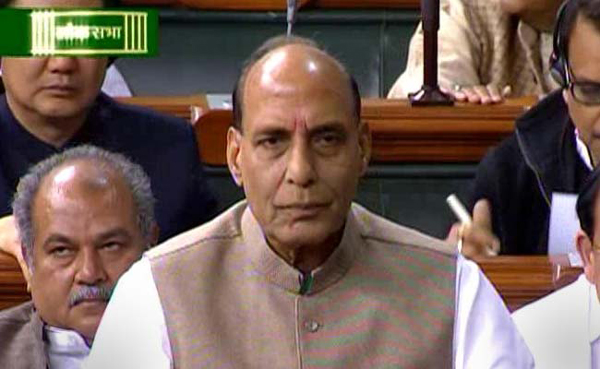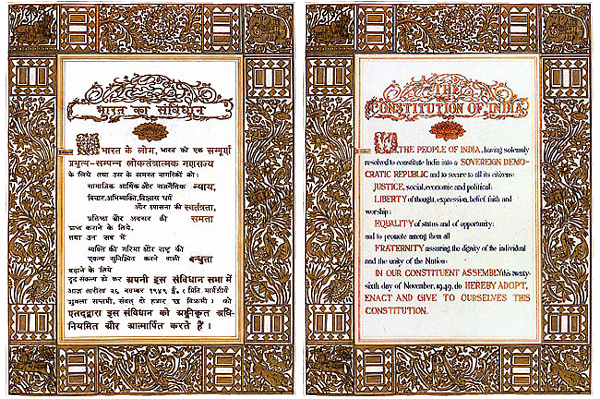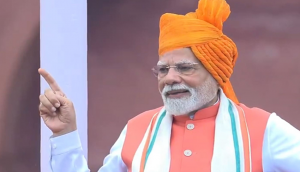
Constitutional expert Subhash Kashyap has backed Rajnath Singh's objection to the word "dharma-nirpekshta" for secularism, saying that the original Hindi translation of the Indian Constitution uses the word "panth-nirpekshta" instead.
'Secular' ke liye samvidhaan mein hindi mein 'panthnirpeksha' shabd hi ka prayog kiya gaya hai-Subhash Kashyap,Constitution Expert
- ANI (@ANI_news) November 26, 2015Rajnath Singh ji ne koi nayi baat nahi kahi, samvidhaan mein jo shabd hai wahi dohraya hai-Subhash Kashyap pic.twitter.com/NUk0tokerG
- ANI (@ANI_news) November 26, 2015The Home Minister's remarks over secularism have caused quite an uproar in the Parliament today. But what is the difference between the two translations?
What is 'dharma'?
Catch spoke to Subhash Kashyap and he puts the difference between the two words into perspective for us.
"If you look at the Oxford dictionary, the meaning of the word 'dharma' is not religion. It actually means duty, righteousness. That is why phrases like 'rajdharma' translate to the 'duty' of a king, not his religion."
Seemingly echoing Rajnath again, he adds: "Dharma' has often come to be wrongly interpreted as religion."

Photo: TV screen grab
'Secular' means something else:
Speaking in Parliament earlier, Rajnath had pronounced 'secular' as the "most misused word in the country" and said that it was because of this rampant misuse that there were instances of tension in the country.
So we asked Kashyap how the word "panth" changes the way we function as a secular country.
Contesting the popular belief that 'secularism' means equality for all religions, he explains that secular in English actually translates to something completely "unrelated to religion". The Oxford dictionary, in fact, defines secular as "not related to religious or spiritual matters".

In this context therefore, the term 'secular' would imply that the state will stay afar from religious matters. In this respect, Kashyap justifies the use of "panth" in the Hindi translation of the Constitution.
"Panth means 'denomination'. The word 'panth-nirpeksh' thus means that as a state India is not wedded to any denomination, which could also be religion."
(Interview done by Geetika Mantri)







![BJP's Kapil Mishra recreates Shankar Mahadevan’s ‘Breathless’ song to highlight Delhi pollution [WATCH] BJP's Kapil Mishra recreates Shankar Mahadevan’s ‘Breathless’ song to highlight Delhi pollution [WATCH]](https://images.catchnews.com/upload/2022/11/03/kapil-mishra_240884_300x172.png)

![Anupam Kher shares pictures of his toned body on 67th birthday [MUST SEE] Anupam Kher shares pictures of his toned body on 67th birthday [MUST SEE]](https://images.catchnews.com/upload/2022/03/07/Anupam_kher_231145_300x172.jpg)






